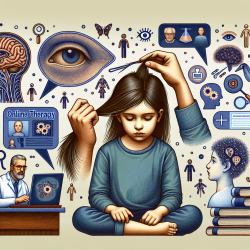As practitioners dedicated to improving outcomes for children with Developmental Language Disorder (DLD), it is crucial to leverage research findings to refine our approaches and interventions. The recent study titled "Social Cognition in Adolescents with Developmental Language Disorder (DLD): Evidence from the Social Attribution Task" offers valuable insights into the social cognition deficits that adolescents with DLD face and provides practical implications for enhancing therapeutic practices.
Understanding the Study
The study utilized the Social Attribution Task (SAT) to assess social cognition in adolescents with DLD. The SAT involves a silent animation where participants describe the actions and interactions of simple shapes, attributing emotions and intentions to them. The study found that adolescents with DLD performed worse than their typically developing (TLD) peers on most SAT indices, particularly in areas such as recognizing key social features, attributing emotions, and describing the shapes as people.
Key Findings
- Adolescents with DLD used fewer emotional terms and identified fewer key social features in the SAT.
- The DLD group scored lower on indices measuring the ability to describe shapes as people and to attribute social meaning to the animation.
- There was a significant association between language abilities and social cognition performance, indicating that better language skills correlate with better social cognition outcomes.
Implications for Practitioners
These findings highlight the importance of addressing social cognition in therapeutic interventions for adolescents with DLD. Here are some practical steps practitioners can take:
1. Incorporate Social Cognition Training
Develop targeted interventions that focus on enhancing social cognition skills, such as recognizing emotions and understanding social cues. Role-playing, social stories, and interactive tasks can be effective methods.
2. Utilize Visual and Interactive Tools
Given the success of the SAT in engaging adolescents, incorporating similar visual and interactive tools in therapy sessions can help in assessing and improving social cognition skills.
3. Tailor Interventions to Language Abilities
Since language abilities are linked to social cognition performance, ensure that interventions are tailored to the individual's language level. Simplify instructions and use visual aids to support understanding.
4. Monitor and Evaluate Progress
Regularly assess social cognition skills using tools like the SAT to monitor progress and adjust interventions as needed. This data-driven approach ensures that therapy remains effective and responsive to the child's needs.
Encouraging Further Research
While this study provides valuable insights, it also underscores the need for further research into the relationship between social cognition and socioemotional difficulties in adolescents with DLD. Practitioners are encouraged to stay informed about ongoing research and to consider participating in studies to contribute to the growing body of knowledge in this field.
To read the original research paper, please follow this link: Social Cognition in Adolescents with Developmental Language Disorder (DLD): Evidence from the Social Attribution Task.










